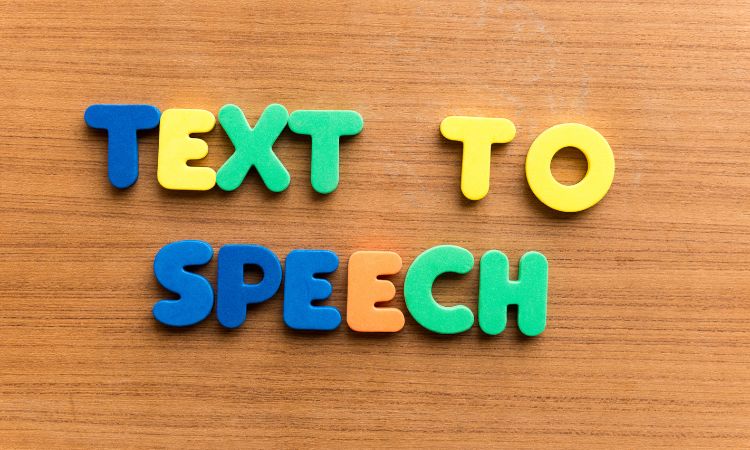In today's digital age, having a strong online presence is crucial for businesses to succeed.…

Avoiding the Copy-Paste Trap: Editing for Genuine Graduate Glory
Let’s be real; we’ve all been there – staring at a blank screen with the weight of a graduate dissertation pressing down and thinking just maybe a little ‘Ctrl+C’ and ‘Ctrl+V’ might alleviate the pressure. But that’s just a mirage. Dive into the world of genuine writing and robust editing, and find your path to academic and personal glory!
Introduction
Have you ever noticed how memes about copying assignments the night before submission go viral in student communities? That’s because the temptation is universal. But when it comes to your graduate studies, it’s crucial to sidestep this allure and aim for authentic work. In the era of digitization, the temptation to fall into the “copy-paste trap” looms large for graduate students. The easiness of gaining access to the vast array of information with just a few keystrokes can sometimes blur the boundaries between research and plagiarism. However, the importance of creating original, genuine work must be stressed more, especially in the realm of higher education.
Understanding the Copy-Paste Trap
Now, what exactly is this “Copy-Paste Trap”? Imagine a spider’s web, shiny and seemingly harmless. But once you’re in, it’s tough to get out. Students, sometimes out of desperation or sometimes sheer laziness, pick chunks of texts from different sources, hoping they’ll blend into a cohesive whole. But remember, while “dissertation copy editing” sounds fancy, it doesn’t mean copying and pasting chunks from someone else’s work! This trap signifies a shortcut approach, where instead of genuine understanding and synthesis, students might resort to lifting content verbatim from multiple sources. This approach not only compromises academic integrity but also deprives students of genuine learning experiences. Authentic graduate work is a testament to a student’s comprehensive understanding, critical thinking, and analytical skills. It’s not just about presenting facts but weaving them into a coherent narrative shaped by one’s unique perspective. Plagiarism isn’t just frowned upon; it’s academic deception. The repercussions? We’ll get to that soon.
The Repercussions of Falling into the Copy-Paste Trap
Why is authenticity crucial in graduate writing?
Genuine work reflects your understanding, skills, and integrity. When your name is on that paper, it should represent your intellect and effort. However, plagiarism can shadow your academic journey. Universities might revoke degrees, or legal action could come knocking. Employers, too, value integrity. A tarnished academic record can hinder prospects.
Tactics for Genuine Writing and Effective Editing
Finding your voice might sound like advice from a cheesy self-help book, but it’s your ticket to genuine writing. Understand your topic. Dive deep, question it, and then link it to your experiences or perspectives. The other weapon in a student’s arsenal is editing. Editing is not merely proofreading. It’s a process of refining, restructuring, and ensuring that the work is not just free from plagiarism but is also a coherent, cohesive piece that reflects one’s understanding and voice. Often, reviewing work after intervals, using plagiarism-checking tools, and seeking peer reviews can be effective editing techniques.
How can research be optimized for authenticity?
Proper note-taking is a start. Jot down points in your own words. And don’t make one source your Bible! Explore multiple avenues, extract diverse views, and create a narrative that’s truly your ideas. Paraphrasing isn’t about changing every third word. It’s about grasping the essence and narrating it in your tone. The difference between “editing dissertation” and plagiarizing is understanding. Once you’ve internalized the topic, you can present it in your unique way.
The Role of Technology in Ensuring Authenticity
Ah, the digital age! Plagiarism detection software can be a boon, especially for unintentional overlaps. But remember, it’s not infallible. Machines check for matches, not intent or understanding. However, they rely on more than just software. Balance it with manual checks. Think of it as using a calculator. You should still know how to do math even if you have a machine to do it for you!
Strategies for Robust Editing to Elevate Graduate Work
Multiple drafts aren’t a sign of weakness; they’re a sign of rigor and dedication. Your first draft is the raw clay, and each subsequent draft sculpts it closer to perfection. Evading this trap necessitates a two-pronged strategy: genuine research and meticulous editing. Authentic research involves:
Going beyond surface-level information.
Diving deep into subjects.
Understanding various viewpoints before forming one’s stance.
This strategy ensures that even if one borrows ideas, they are processed, internalized, and presented in a fresh, original manner.
How to Read and Write Correctly
Finding a missing comma or a mistake isn’t the only thing that proofreading is for. It’s a complicated dance between art and science. Let’s clear the air before we go deep. That’s not the same thing as changing. “Dissertation editing services” focus on structure, reasoning, and clarity. Proofreading, on the other hand, is the final step to make sure your paper is error-free. It’s like making sure your car has both a strong engine (editing) and a nice, shiny outside (proofreading) before the big race called “Academic Review.” It’s not enough to just find mistakes when you proofread; it’s also a test of your accuracy and honesty. For months or even years, you should do a lot of study for your work. You should make sure it is presented in the best way possible. No matter how small, every typo, grammatical error, or inconsistency makes the study less useful and takes attention away from its main point.
Mistakes People Make When Writing Dissertations
Do you often make mistakes like typos, missing references, or the standard “its/it’s a conundrum”? Such mistakes that aren’t noticed can make a reader doubt the whole study. Don’t worry, though! These mistakes can be avoided with “professional dissertation proofreading techniques.” Masterful editing is more than just a quick look over. One great method is called the “Two-Pass Method.” The first pass is all about the material. Does the argument make sense? Are there holes in the story? Grammar, punctuation, and writing are paid more attention to on the second read. This approach looks at both the big picture and the specifics, making sure that the whole picture is covered.
Why is it so important to proofread dissertations?
You wouldn’t go to a fancy dinner in sneakers, would you? Similarly, a paper with a lot of mistakes doesn’t show how important it is in the academic world. First impressions are important. Your dissertation shows how hard you worked on your study, and unfortunately, small mistakes can hide big discoveries. Imagine making a cutting-edge, state-of-the-art building and then painting it in a random way. The main idea of your study may be good, but the finishing touches are what make it shine.
What are the best proofreading techniques for graduate students?
Reading aloud is old-school but gold. If it sounds off when spoken, it’s likely off on paper, too. Peer reviews are like getting a fresh pair of eyes on a puzzle. Sometimes, they spot what’s been staring at you all along. And if you can, hire an editor for dissertation. Some of the best dissertation editing services offer specialized expertise that can elevate your work from good to great. Speaking of editing, have you ever considered professional help? Platforms offering Ph.D. thesis editing services can polish your work while preserving its essence. Opting for genuine dissertation editing services ensures your dissertation shines in all its researched glory. Time management is also key. Have you ever tried editing a paper you just wrote? It’s like looking in the mirror; you miss out on the spinach stuck in your teeth—space out your writing and editing sessions to view your work with fresh eyes.
Additional Resources
If you’re keen on upping your editing game, there are tons of resources. Books, online tools, and even workshops can guide you. After all, education is a lifelong journey, and there’s always room for improvement!
Conclusion
In conclusion, while the digital age offers myriad resources at our fingertips, it’s imperative to use them judiciously. Avoiding the copy-paste trap and embracing genuine research and editing not only ensures academic success but also contributes to personal and intellectual growth. After all, graduate glory is not just in earning a degree but in the knowledge and integrity that it signifies. Your graduate journey is a testament to your hard work, dedication, and intellect. Make sure your dissertation reflects that. Avoid the copy-paste allure, embrace genuine research editing, and produce a masterpiece that you can proudly call your own.




This Post Has 0 Comments